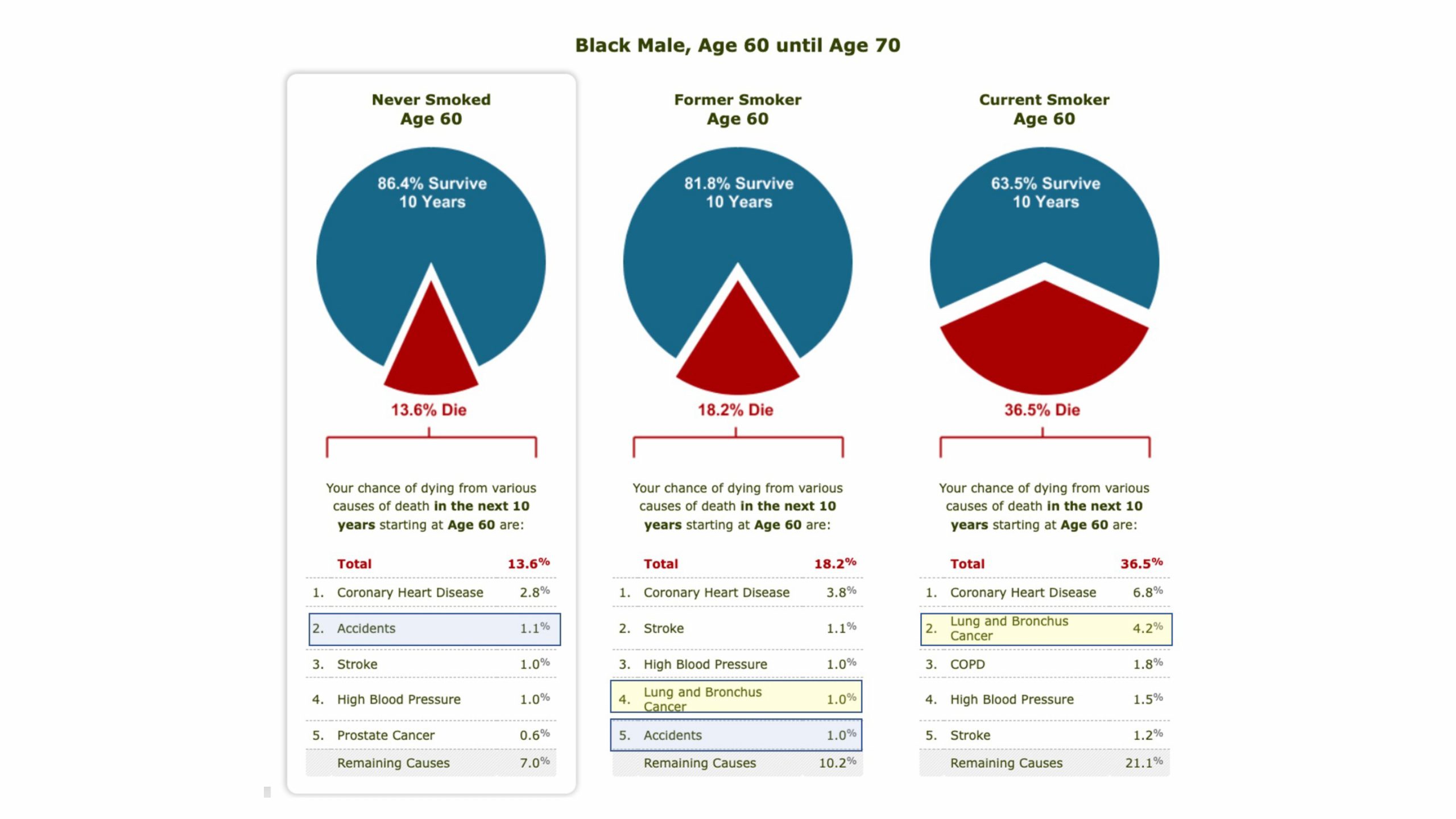New findings from a project led by researchers at Dartmouth’s Geisel School of Medicine in collaboration with the National Cancer Institute (NCI) and published in the journal JAMA Network Open, show the dramatic impact that smoking status has on mortality and more accurately predict the risk of dying from cancer and other diseases.

“Historically, mortality risk has often been presented by age, sex, and race but it rarely has accounted for smoking status—a major risk factor for many causes of death,” says lead author Steven Woloshin, MD, MS, a professor of medicine and community and family medicine, and co-director of the Master of Health Care Delivery Science program at The Dartmouth Institute for Health Policy and Clinical Practice. “Our main goal has been to address this important gap in mortality estimates.”
The project involved updating the NCI’s Know Your Chances website, which allows users to create interactive risk charts with age, sex, and race-specific estimates of the probability of death from 88 different causes that are now stratified by smoking status across variable timeframes.
The researchers found that the chance of death from major causes like heart disease, lung cancer, and all-causes combined vary importantly by smoking status.
For example, after age 40 the observed effect of never vs. current smoking on the 10-year chance of death from all causes combined approximates adding 10 years to a smoker’s age. Similarly, after age 40, the chance of death from all causes combined also varied importantly by race—adding about 5 years to a Black person’s age compared to a White person with the same smoking status.
In 2015, Woloshin and his wife and research partner Lisa Schwartz, MD, MS (who passed away in 2018) worked with the NCI to create the Know Your Chances website to provide a free public resource for patients and their physicians, researchers, policy makers, journalists, and others.
“The aim of the website has been to help people make sense of the disease risks they face by providing basic facts and context—including how big the risks are and how they compare with each other,” he says.
Woloshin and his colleagues developed the updated mortality estimates using life-table methodology (via the NCI’s DevCan software package), combining data from multiple sources such as the U.S. National Vital Statistics System.
“This project shows that the initial intuition we had was true—that failing to account for smoking results in inaccurate estimates for many causes of death, consistently underestimating the risk for smokers and overestimating the risk for non-smokers,” says Woloshin.
“We’re totally open and enthusiastic about getting advice or suggestions from the public,” he adds. “We want to make the updated Know Your Chances website as useful as possible to its various audiences.”
The Dartmouth Institute for Health Policy and Clinical Practice is a world leader in studying and advancing models for disruptive change in healthcare delivery. The work of Dartmouth Institute faculty and researchers includes developing the concept of shared decision-making between patients and healthcare professionals, creating the model for Accountable Care Organizations (ACOs), and introducing the game-changing concept that more healthcare is not necessarily better care.
